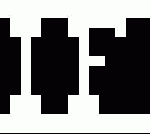Practice Protocols
 It is sometime difficult to define what is a program, a protocol, a technique and/or a procedure, since they are nested like Slavic dolls. Technically, we would call an overall strategy for change a program that would include a series of differing protocols to change different issues. A protocol would be defined as a sequencing of specific techniques designed to meet specific identified change targets. Each technique might then include a series of procedures that need to be carried out in order to complete the technique. What happens in real life is that it depends! As you deal with issues, the various components continue to be used, nestled within each other, but the perspective changes. Thus a technique might be viewed as the program or protocol to evoke change. From this perspective, the components listed below are subject to personal interpretation as to placement. For an overview of these components see the Resource Menu on the Books page. Below you will find specific protocols to target specific problems in living.
It is sometime difficult to define what is a program, a protocol, a technique and/or a procedure, since they are nested like Slavic dolls. Technically, we would call an overall strategy for change a program that would include a series of differing protocols to change different issues. A protocol would be defined as a sequencing of specific techniques designed to meet specific identified change targets. Each technique might then include a series of procedures that need to be carried out in order to complete the technique. What happens in real life is that it depends! As you deal with issues, the various components continue to be used, nestled within each other, but the perspective changes. Thus a technique might be viewed as the program or protocol to evoke change. From this perspective, the components listed below are subject to personal interpretation as to placement. For an overview of these components see the Resource Menu on the Books page. Below you will find specific protocols to target specific problems in living.
Related Content
12 School-wide Effective Behavioral Support
CLINICAL PROMPT - To be used AFTER the protocol is understood. School-wide effective behavioral supports may require a restructuring of the beliefs to implement a process of changing messages in the culture. There must be psychoeducation, e.g., an explanation of the...
13 Social Competence
INTRODUCTION The advent of competence approaches is a fairly late development in the human services professions. Until recent years, these professions have been dominated by defect approaches, the medical and psychoanalytic models their best know examples. Adherents...
14 Addiction & The Cognitive Path
This protocol is based upon the information contained in the Psychological Assessment, Referral & Treatment Services website generated by William Dubin. The material has been modified by the CCIU to adapt it to a skill training for practitioners and several...
15 Reactive Attachment Disorder
INTRODUCTION "Unattached children...have an uncanny ability to appear attractive, bright, loving . . . helpless, hopeless, lost . . . or promising, creative, and intelligent, as may suit their needs at the time. Therefore, strangers, helpful neighbors, even...
16 Choice & Reality
Assumptions of Rational Choice Theory Humans are purposive and goal oriented. Humans have sets of hierarchically ordered preferences, or utilities. In choosing lines of behavior, humans make rational calculations with respect to: the utility of alternative lines of...
17 Procrastination
PROCRASTINATION "Work is the greatest thing in the world, so we should always save some of it for tomorrow." Don Herold INTRODUCTION Procrastination comes from the Latin ‘pro’, meaning “forward, forth, or in favor of”, and ‘crastinus’, meaning “of tomorrow”. However,...
18 Executive Dysfunction
INTRODUCTION Parents and teachers are often baffled when students, including those who are intellectually gifted, teeter on the brink of school failure. Recently researchers may have solved part of this challenging puzzle by identifying deficits in critical cognitive...
